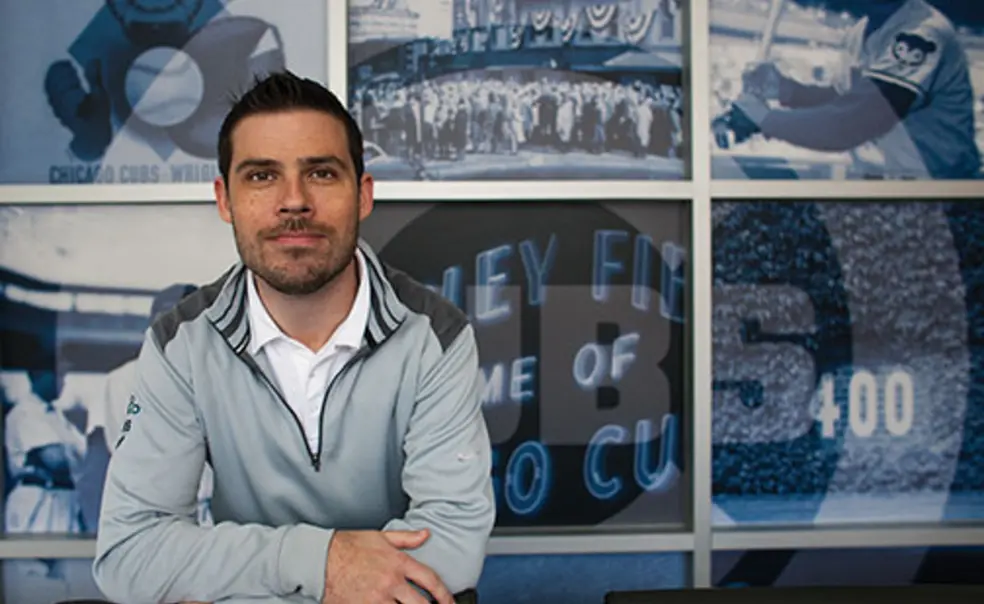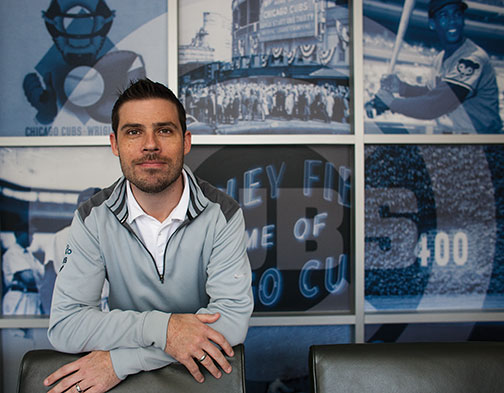Chris Moore *10: Algorithms in the Field
A neuroscientist brings his knack for data analysis to a long-suffering ballclub
As a Ph.D. student at Princeton, Chris Moore *10 developed algorithms to help researchers understand how the brain works. Today, he applies the same computational skills to help the Chicago Cubs try to build a winning baseball team.
Baseball and neuroscience may seem unrelated, but Moore, the Cubs’ director of research and development, says that his academic background “translates quite well” to the challenging data sets and sophisticated questions he encounters in his job.
Baseball has a longstanding analytic bent, among both front-office executives and hobbyists. Moore began in the latter camp: During his time at Princeton, he published a detailed analysis of the best pitchers in the major leagues on the blog baseballanalysts.com, drawing on a data set of nearly 500,000 pitches. He worked in finance after finishing his Ph.D. and made the leap to baseball in 2013, after a friend forwarded the Cubs’ job posting.
Statistics play a significant role in how players are evaluated, within a team and on the free-agent market. They also factor into on-field decisions, such as how to position fielders against specific batters. New tools are paving the way for new analyses: In 2014, major-league stadiums installed a system called Statcast to track the speed and acceleration of every player on the field.
“There have been multiple generations of analysts in baseball,” Moore says. “Each one found an angle to exploit. And slowly, the other teams find those angles too, and they stop working because everybody knows them. Then the challenge is for the next guy to come in and find the next angle.”
Moore, a Massachusetts native, grew up rooting for the Boston Red Sox, so he can relate to Cubs fans, who have endured a championship drought that dates back to 1908. Throughout the organization, he says, “there’s very much a day-to-day mindset [that] we’re here to win a World Series.”













No responses yet